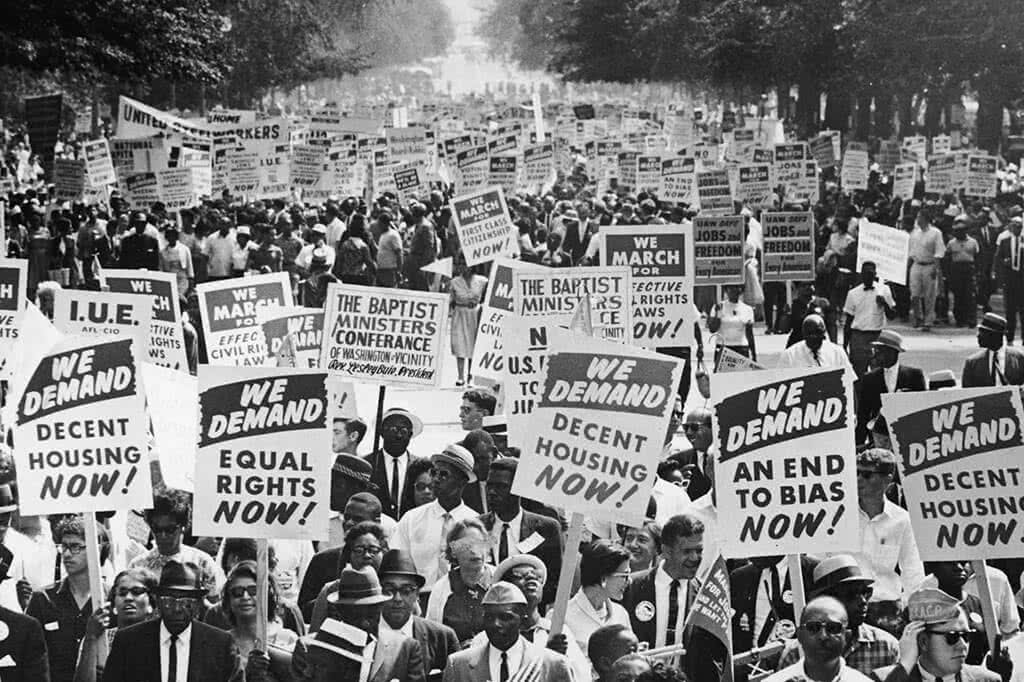1968: Fair Housing Act

The Fair Housing Act of 1968, meant as a follow-up to the Civil Rights Act of 1964, marked the last great legislative achievement in the civil rights era. Originally intended to extend federal protections to civil rights workers, it was later expanded to address racial discrimination during the sale, rental, or financing of housing units. After the bill passed the Senate by an exceedingly narrow margin in early April of 1968, it was thought that the increasingly conservative House of Representatives, wary of the growing strength and militancy of the Black Power movement, would weaken it considerably.
However, on the day of the Senate vote, Martin Luther King Jr. was assassinated in Memphis. Pressure to pass the bill increased amid the wave of national remorse that followed, and after a strictly limited debate the House passed the Fair Housing Act on April 10. President Lyndon B. Johnson signed it into law the following day. Over the following years there was little progress in housing desegregation, and violence arose from Black efforts to seek housing in white neighborhoods.
From 1950 to 1980, the total Black population in America’s urban centers increased from 6.1 million to 15.3 million; during this same time period, white Americans steadily moved out of the cities into the suburbs, taking with them many of the employment opportunities Black people needed. In this way, the ghetto — an inner-city community plagued by high unemployment, crime, and other social ills — became an ever more prevalent fact of urban Black life.
